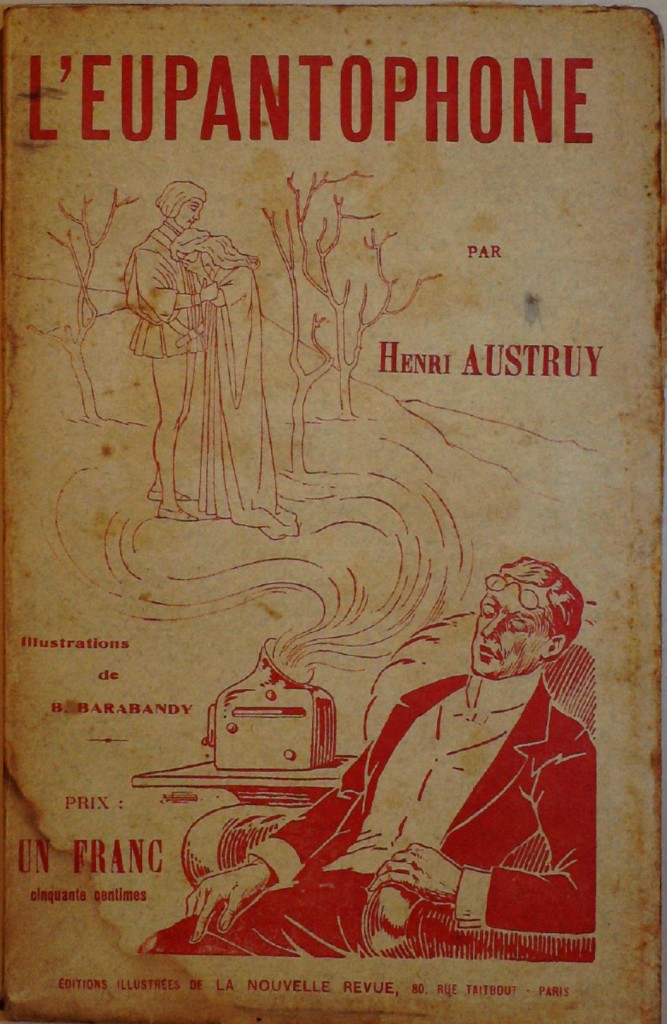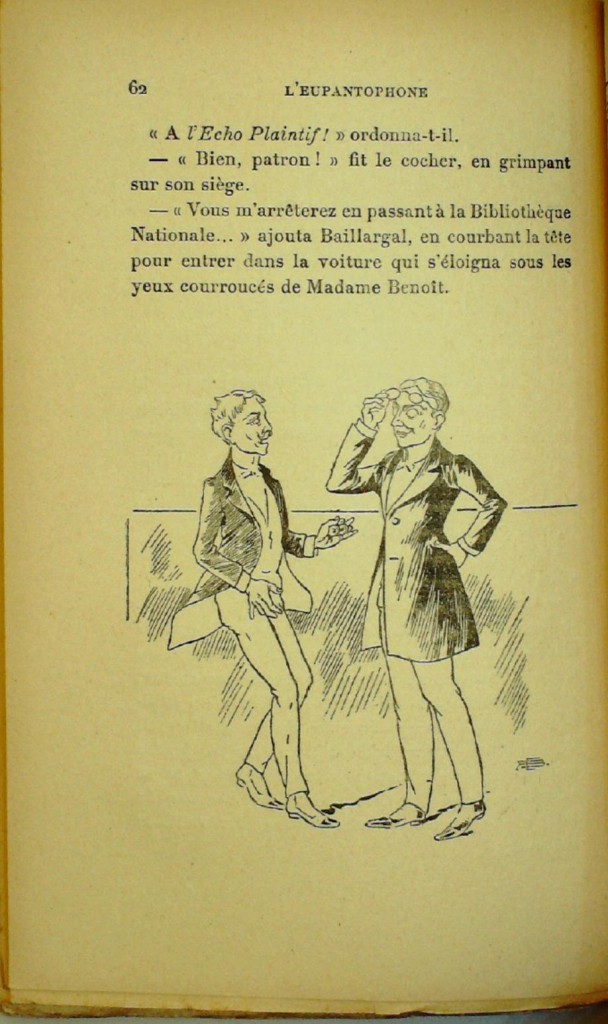 This post is part of an ongoing series featuring material from the Julio Mario Santo Domingo Collection.
This post is part of an ongoing series featuring material from the Julio Mario Santo Domingo Collection.
Henri Austruy, born in 1871, was an attorney and editor of the journal La nouvelle revue from 1913 to 1940, when occupying Nazi forces shut the journal down. 1940 is also the approximate date of Austruy’s unrecorded death, which may have been at the hands of the same forces. During his editorship, Austruy also produced several idiosyncratic works of turn-of-the-century science fiction and fantasy, which used alternate histories and imagined futures to lampoon and allegorize contemporary society. These novels, underappreciated in their time and nearly unknown today, include L’ère “Petitpaon”, ou, La paix universelle (1906). In it, Austruy satirizes his bellicose civilization by describing a near-future world utterly at peace; less than a decade after its publication, Europe would be engulfed in war.
The volume pictured here, L’eupantophone, centers around the eponymous machine, a modified phonograph that can automatically convert text to the spoken word, and its inventor, Victor Blancadet. Blancadet, a blind man, further develops his wondrous eupantophone to convert light into sound by modifying vibrations in the ether, allowing him to “see” by means of sound; the main action of the story follows the societal consequences of widespread access to this transformative device. (Another Austruy novel, L’olotelepan, also involves a fantastical machine and its effects on humanity; the olotelepan is able to project one’s senses to chosen recipients at any distance.) In the illustration shown here, Blancadet reveals his blindness to an astonished journalist, who mistakes the eupantaphone’s powers of text-to-speech for Blancadet’s ventriloquistic skills.
L’eupantophone: FC9.Au797.900e; HOLLIS number 14303711
Thanks to rare book cataloger Ryan Wheeler for contributing this post.

